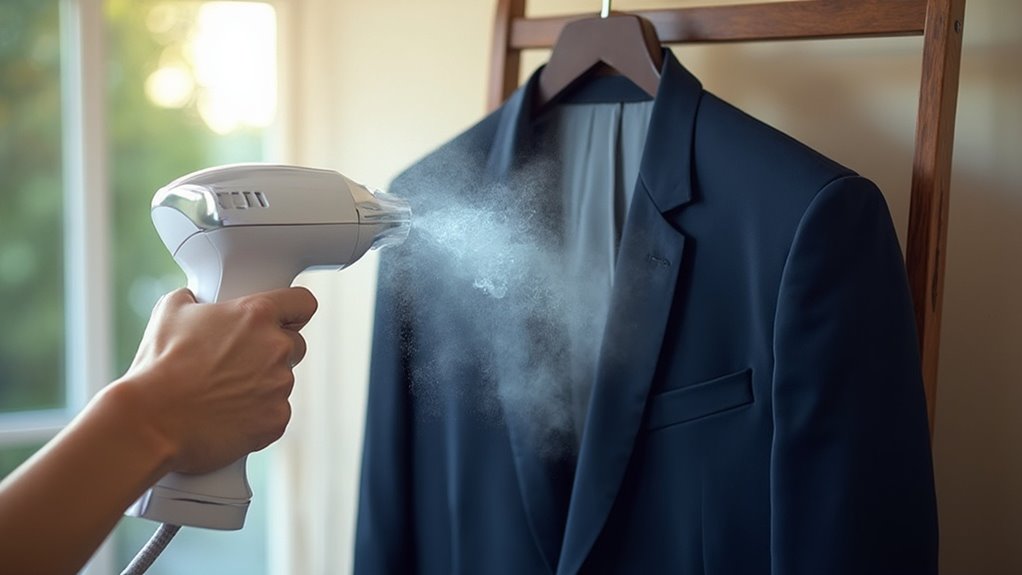Table of Contents Show
There may be products. Products are independently selected by our editors. We may earn an affiliate commission from the links with no charge to you, example: as Amazon Affiliate.
Understanding the importance of boundaries in friendships is crucial for recognizing toxic dynamics. Setting clear boundaries creates a healthy foundation for relationships, while ignoring them can lead to detrimental effects. Signs of toxic friendships include constant criticism, feeling drained, and having boundaries disrespected. By establishing healthy limits and embracing open communication, one can navigate difficult conversations and cultivate supportive relationships. Remember, recognizing and addressing toxic behavior early on is essential for fostering positive and lasting friendships.
Key Takeaways
- Clear boundaries safeguard against toxic behaviors.
- Recognize warning signs like constant criticism.
- Ignoring boundaries can lead to emotional turmoil.
- Identifying toxic dynamics early protects mental well-being.
- Healthy boundaries foster trust and respect in friendships.
Understanding Friendship Boundaries
Understanding friendship boundaries is crucial for maintaining healthy and fulfilling relationships. In this fast-paced world, where connections are made with a simple click, it’s easy to overlook the importance of setting clear boundaries with our friends. Boundaries serve as the framework within which friendships can thrive, allowing both parties to feel respected, understood, and valued. By defining what’s acceptable and what’s not, we create a safe space for open communication and mutual growth.
Friendship boundaries aren’t about building walls or shutting people out; instead, they’re about establishing mutual respect and understanding. They help us navigate the complexities of human relationships, ensuring that both parties feel comfortable and secure. When boundaries are blurred or ignored, friendships can become strained, leading to misunderstandings and conflicts. By recognizing and honoring each other’s boundaries, we show that we value and care for our friends’ well-being.
Innovative friendships are those that embrace boundaries as a means of deepening connections and fostering trust. By setting clear expectations and communicating openly, we pave the way for stronger, more meaningful relationships that stand the test of time.
Signs of Toxic Friendships
I’ve noticed some red flags in my friendships lately – things like constant criticism, feeling drained after spending time together, and having my boundaries ignored.
Setting healthy boundaries seems crucial now to protect my well-being and maintain positive relationships.
It’s time to address any toxic behavior head-on for the sake of my mental and emotional health.
Warning Signs to Watch
Spotting signs of toxic friendships can be crucial for maintaining emotional well-being and setting healthy boundaries. It’s important to be aware of warning signs that indicate a friendship may be harmful. Here are some key signs to watch for:
| Warning Signs | Description |
|---|---|
| Constant Criticism | Friend frequently puts you down or belittles you. |
| Lack of Support | They are never there for you in times of need. |
| Manipulative Behavior | Trying to control or manipulate you for their gain. |
Recognizing these warning signs early on can help you make informed decisions about your friendships and take steps to protect your well-being.
Setting Healthy Boundaries
Establishing clear boundaries is essential in identifying and addressing toxic dynamics within friendships. When setting healthy boundaries, it’s crucial to:
- Clearly communicate your needs and expectations.
- Be assertive in expressing your limits.
- Practice self-awareness to recognize when boundaries are being crossed.
- Surround yourself with friends who respect and support your boundaries.
- Regularly reassess and adjust boundaries as needed to maintain healthy relationships.
Addressing Toxic Behavior
Recognizing toxic behavior in friendships is crucial for maintaining emotional well-being and fostering healthy relationships. Identifying signs of toxicity early on can help prevent further harm and promote a positive social environment. Below is a table outlining common indicators of toxic friendships that may warrant further evaluation:
| Signs of Toxic Friendships |
|---|
| Constant negativity |
| Lack of support |
| Manipulative behavior |
| Disrespect for boundaries |
| Unwillingness to communicate |
Impact on Mental Health
Navigating toxic dynamics in friendships can significantly impact my mental health, leading to increased stress and emotional turmoil. When toxic behavior infiltrates a friendship, it can feel like a storm brewing within my mind, affecting my well-being in profound ways. The constant tension and negativity that accompany such relationships can take a toll on my mental health, creating a challenging environment to thrive in.
Here are some ways in which toxic dynamics can impact mental health:
- Constant Anxiety: The uncertainty and unease caused by toxic friendships can lead to a perpetual state of anxiety.
- Emotional Drain: Dealing with toxic behaviors can leave me emotionally exhausted, unable to recharge and rejuvenate.
- Self-Doubt: Toxic dynamics may sow seeds of self-doubt, eroding my confidence and self-esteem.
- Isolation: The toxicity in a friendship can make me feel isolated and alone, exacerbating feelings of loneliness.
- Mood Swings: The rollercoaster of emotions triggered by toxic relationships can result in unpredictable mood swings.
Setting Healthy Limits
I believe it’s crucial to establish clear communication boundaries within friendships, ensuring that both parties feel respected and understood.
By respecting each other’s personal space, we create a healthy environment where everyone feels comfortable and valued.
Setting mutual expectations can help prevent misunderstandings and foster a more positive and supportive friendship dynamic.
Clear Communication Boundaries
Setting healthy limits in communication is essential for maintaining positive and respectful friendships. When establishing clear communication boundaries, consider these key points:
-
Be direct: Communicate openly and honestly to avoid misunderstandings.
-
Listen actively: Show genuine interest and empathy in conversations.
-
Set expectations: Clearly outline what you’re comfortable with in terms of communication frequency and topics.
-
Respect differences: Acknowledge and embrace diverse perspectives to foster meaningful discussions.
-
Use technology mindfully: Balance virtual and in-person interactions to maintain a healthy communication mix.
Respect Personal Space
Respecting personal space in friendships is crucial for maintaining healthy boundaries and mutual respect. It’s like tending to a flourishing garden; giving each plant the right amount of space ensures they all thrive. Setting limits on physical proximity, emotional involvement, and time together can prevent feelings of suffocation or resentment.
By respecting personal space, we acknowledge and honor each other’s individuality, preferences, and needs. This practice fosters a sense of autonomy within the friendship, allowing both parties to grow independently while still nurturing the connection. Just as galaxies in the universe have their own orbits, friends too need room to move freely.
Embracing personal space enriches friendships, creating a harmonious balance between togetherness and independence.
Establish Mutual Expectations
Establishing mutual expectations in friendships involves clearly defining boundaries and setting healthy limits to ensure a balanced and respectful relationship. When setting these expectations, consider:
- Communication: Open, honest discussions about needs and boundaries.
- Flexibility: Willingness to adjust expectations as the friendship evolves.
- Respect: Valuing each other’s boundaries and privacy.
- Accountability: Taking responsibility for actions and honoring agreements.
- Growth: Encouraging personal development and supporting each other’s goals.
Communication Strategies
In navigating toxic friendship dynamics, effective communication serves as the cornerstone for fostering healthier relationships. To innovate in this area, I believe that embracing open and honest dialogue is crucial. By expressing our thoughts and feelings clearly, we can address issues before they escalate and prevent misunderstandings.
Utilizing active listening skills can also enhance communication, showing our friends that their perspectives are valued. Embracing empathy and understanding during conversations can help cultivate a more supportive and respectful friendship dynamic.
Additionally, incorporating assertiveness in our communication style allows us to set boundaries confidently and assert our needs without fear of conflict. Utilizing modern tools like messaging apps or scheduling regular video calls can help maintain consistent communication, even in busy schedules.
Navigating Difficult Conversations
When faced with challenging discussions in friendships, approaching them with honesty and empathy is essential for fostering understanding and growth. It’s crucial to navigate these conversations thoughtfully to maintain the relationship’s health and address any underlying issues.
Here are some strategies I find helpful:
- Active Listening: Engage fully with what the other person is saying, showing that you value their perspective.
- Reflective Responses: Mirror back what you’ve heard to ensure you understand correctly and validate their feelings.
- Open-Mindedness: Approach the conversation without preconceived notions, allowing for new insights to emerge.
- Respectful Communication: Keep the dialogue respectful and constructive, focusing on finding solutions together.
- Emotional Awareness: Be mindful of your emotions and how they may influence the discussion, aiming to express yourself authentically yet tactfully.
Red Flags to Watch For
Recognizing red flags in friendships is crucial for maintaining healthy and supportive relationships. As someone who values innovation in relationships, it’s essential to be mindful of certain warning signs that may indicate toxic dynamics. One red flag to watch for is a lack of respect for boundaries. If a friend consistently disregards your boundaries or makes you feel uncomfortable by crossing lines you’ve clearly set, it could be a sign of a larger issue.
Another red flag is one-sidedness in the relationship. If you find yourself always being the one to initiate plans, offer support, or show care, while receiving little in return, it may signal an imbalance that could lead to feelings of resentment or neglect over time. Additionally, constant negativity or criticism from a friend can be detrimental to your well-being and the overall health of the friendship.
Being attuned to these red flags can help you address issues early on and potentially steer the friendship towards a more positive and supportive direction.
Cultivating Supportive Relationships
To foster supportive relationships, I prioritize open communication and mutual understanding to create a foundation of trust and empathy. This approach helps build strong connections that uplift both parties involved. In cultivating supportive relationships, I find that the following practices are crucial:
- Active Listening: Engage fully in conversations, showing genuine interest and understanding.
- Empowerment: Encourage each other to grow, learn, and pursue goals.
- Vulnerability: Share feelings and experiences authentically, fostering deep emotional bonds.
- Celebrate Differences: Embrace diverse perspectives and learn from each other’s unique viewpoints.
- Consistent Support: Be there in times of need, offering a listening ear or a helping hand without judgment.
Frequently Asked Questions
How Can I Confront a Friend About Their Toxic Behavior Without Damaging the Friendship?
I would approach my friend calmly, expressing how their behavior affects me. I would use "I" statements, focusing on my feelings rather than attacking them. It’s crucial to listen, understand, and work together towards a healthier dynamic.
What Are Some Common Misconceptions About Setting Boundaries in Friendships?
Setting boundaries in friendships is often seen as restricting, but in reality, they’re liberating. Misunderstandings can arise when people think boundaries mean building walls. Instead, boundaries create healthy, respectful connections.
Is It Possible to Repair a Toxic Friendship or Is It Better to Cut Ties Completely?
Repairing a toxic friendship can be challenging but worthwhile if both parties are committed to change. Communication, setting clear boundaries, and seeking professional help can be key. However, if toxicity persists despite efforts, cutting ties might be necessary for self-preservation.
How Can I Differentiate Between a Friend Who Is Going Through a Rough Patch and One Who Is Consistently Toxic?
Navigating friendships can be like tending a garden. I observe patterns of behavior – sporadic storms versus a constant downpour. Trusting my instincts, I nurture growth where possible and bravely prune toxicity away.
Are There Any Resources or Support Groups Available for Individuals Struggling With Toxic Friendships?
There are various resources like online forums, therapy, and self-help books to support those navigating toxic friendships. It’s essential to seek help and guidance to prioritize your well-being and establish healthier relationships.
Conclusion
Setting boundaries in friendships is like building a fortress around your mental health. It’s like putting up a force field that repels toxic energy and negativity.
By recognizing toxic dynamics and establishing healthy limits, you’re creating a safe space for yourself to thrive. Cultivating supportive relationships is like planting a garden of positivity and love, where you can blossom and grow.
Remember, boundaries aren’t walls, they’re shields that protect your well-being.









